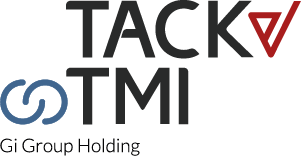In today’s fast-moving business environment, scaling learning in large organisations is essential to remain competitive and agile. Whether expanding across multiple countries or reassessing existing learning strategies, employees need consistent upskilling and knowledge sharing to ensure they have the tools and capabilities to perform at their best, wherever they are located.
A robust learning strategy not only helps attract and retain top talent, but also enables employees to respond effectively to market changes, ensuring that high standards of performance and customer experience are maintained throughout the business.
Overcoming the Challenges of Scaling Learning Across Geographies
Rolling out learning initiatives across multiple regions can be complex. Organisations often face a variety of challenges, including:
Multiple locations: Delivering consistent learning experiences across different countries, time zones, languages, and cultural contexts.
Balancing global vs local priorities: Aligning corporate learning strategies with the specific needs and cultural nuances of local teams.
Resource constraints: Managing limited budgets, content creation capacities, and trainer availability across regions.
Technology access: Dealing with differences in digital infrastructure across offices.
Accessibility and relevance: Ensuring training is meaningful and engaging for diverse roles and levels within the organisation.
Tracking impact: Measuring learning outcomes and business impact across potentially fragmented systems.
Organisational silos: Coordinating efforts between headquarters, regional teams, and other business units.
Four Strategies to Make Global Learning Work Locally
Successfully scaling learning across regions requires a combination of clear design, technology, content, and local ownership, while maintaining the strategic direction set by headquarters. Key strategies include:
Choose a partner with a local presence
Working with a learning provider that has offices and trainers in multiple countries ensures cultural relevance and consistency. Local trainers understand the context of their regions, speak the language, and can build stronger engagement with employees.Adopt a blended learning approach
Combining face-to-face and online learning allows employees flexibility while ensuring consistent delivery. In-person sessions help build relationships and overcome cultural barriers, whereas digital learning provides accessibility and convenience.Global alignment, local delivery
A clear global learning framework ensures consistency, while allowing local teams to tailor content to their needs. Toolkits, modular content, and local trainers enable organisations to maintain standards without stifling regional flexibility.Partner with a scalable provider
Selecting a trusted learning provider with global reach and local adaptability increases efficiency and quality. A partner experienced in navigating cultural and organisational differences can help foster a shared corporate culture and values across all locations.

Case Study: Ferrovial’s Approach to Scalable Learning
Ferrovial, a global leader in construction and engineering with over 25,000 employees across 15+ countries, sought to develop leadership capability while ensuring consistent standards across its workforce.
The company partnered with Tack TMI to deliver two targeted programmes: Foundations of Leadership and Building High Impact Leaders. These programmes were designed to accommodate different roles, locations, and cultural contexts, combining face-to-face and online delivery to allow flexibility across time zones and languages.
Rolling out the programmes in stages, with multiple local hubs, enabled Ferrovial to refine the approach for each region, create local ownership, and scale learning effectively.
Rosa Arenas, Global Learning and Talent Development Manager at Ferrovial, commented:
Working with Tack TMI allowed us to tailor content and delivery to local requirements while maintaining global standards. The approach was accessible, impactful, and trusted by our regional teams.
By embedding scalable, culturally aware learning, Ferrovial ensures its leadership programmes support both employee growth and strategic business goals.
